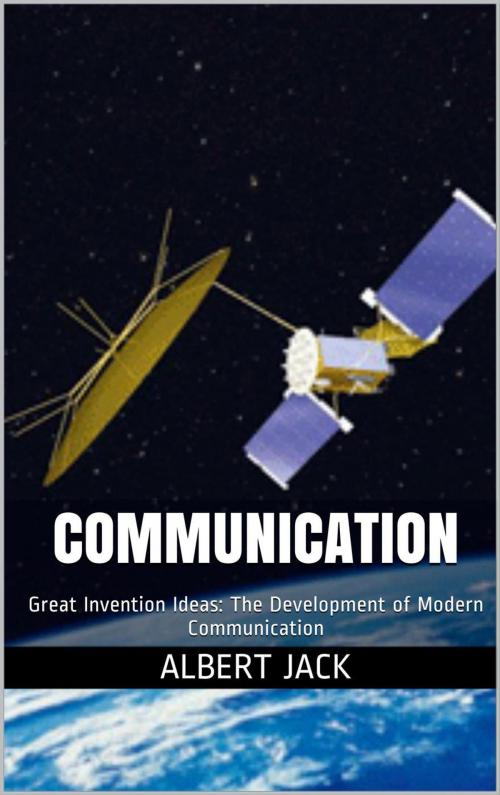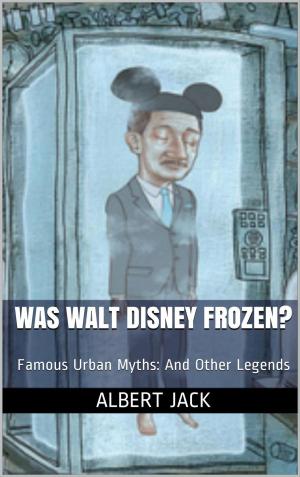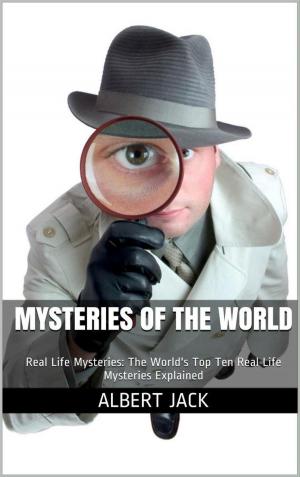| Author: | Albert Jack | ISBN: | 9781386760436 |
| Publisher: | Albert Jack Publishing | Publication: | February 28, 2018 |
| Imprint: | Language: | English |
| Author: | Albert Jack |
| ISBN: | 9781386760436 |
| Publisher: | Albert Jack Publishing |
| Publication: | February 28, 2018 |
| Imprint: | |
| Language: | English |
**From the bestselling author of Red Herrings & White Elephants, Shaggy Dogs, Pop Goes the Weasel, They Laughed at Galileo and many more... **
‘If the world should blow itself up, the last audible voice would be that of an expert saying, ‘It can’t be done.’ – Peter Ustinov
Introduction
Curiosity will eventually lead to innovation. Fortunately we are an imaginative species who does a lot of wondering. Way back to when man first learned to walk upright and began communicating with each other, by pointing and shouting, we can find the earliest examples. Somebody once thought, ‘I know, we can move that heavy rock, or dead buffalo, by rolling it along on tree trunks because it is easier than dragging it over the ground.’
This, of course, led to the wheel. It must have been around that time that some other clever soul worked out that if he held some meat over that hot fiery thing then it tasted better. It seems basic but it was innovation. Somebody somewhere decided to take the risk of burning their food down into ashes, as they knew the burning logs did, just to see if it tasted any better.
But I bet there was someone else laughing at him and saying ‘don’t do that, it’s a terrible idea,’ (or whatever is was they would have said back then.) And that’s innovation too. That’s discovery and invention.
We have been doing it ever since in one form or another and we have come a long way as a species thanks to people who take risks and ignore the advice of wiser ones. And that, in a nutshell, is what They Laughed at Galileo is all about.
This, then, is the story of communication and how Marconi developed the radio, Alexander Graham Bell worked out how to send a voice down electrical wires, computers made life so much easier and satellites changed the way we communicate forever.
**From the bestselling author of Red Herrings & White Elephants, Shaggy Dogs, Pop Goes the Weasel, They Laughed at Galileo and many more... **
‘If the world should blow itself up, the last audible voice would be that of an expert saying, ‘It can’t be done.’ – Peter Ustinov
Introduction
Curiosity will eventually lead to innovation. Fortunately we are an imaginative species who does a lot of wondering. Way back to when man first learned to walk upright and began communicating with each other, by pointing and shouting, we can find the earliest examples. Somebody once thought, ‘I know, we can move that heavy rock, or dead buffalo, by rolling it along on tree trunks because it is easier than dragging it over the ground.’
This, of course, led to the wheel. It must have been around that time that some other clever soul worked out that if he held some meat over that hot fiery thing then it tasted better. It seems basic but it was innovation. Somebody somewhere decided to take the risk of burning their food down into ashes, as they knew the burning logs did, just to see if it tasted any better.
But I bet there was someone else laughing at him and saying ‘don’t do that, it’s a terrible idea,’ (or whatever is was they would have said back then.) And that’s innovation too. That’s discovery and invention.
We have been doing it ever since in one form or another and we have come a long way as a species thanks to people who take risks and ignore the advice of wiser ones. And that, in a nutshell, is what They Laughed at Galileo is all about.
This, then, is the story of communication and how Marconi developed the radio, Alexander Graham Bell worked out how to send a voice down electrical wires, computers made life so much easier and satellites changed the way we communicate forever.















